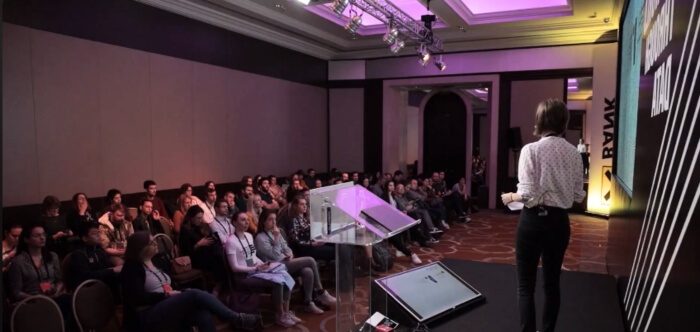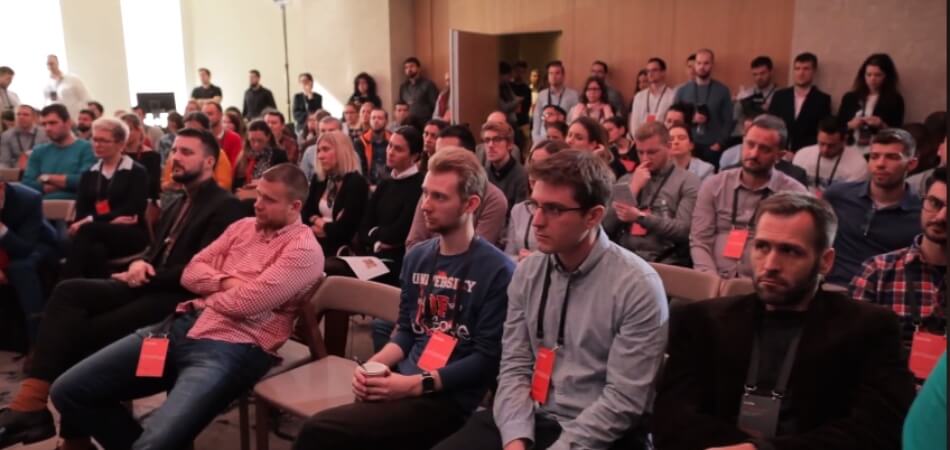As a student, it can be difficult to navigate the vast and intricate world of medicine. There are textbooks to devour, clinical skills to master, and endless hours of study. Amidst this whirlwind, you might wonder, Should I go to conferences as a medical student?
Yes of course. Conferences are not just about presentations and lectures. They offer an invaluable opportunity to broaden your horizons and immerse yourself in the collective passion of seasoned professionals and peers alike. More than just academic enrichment, they also present a unique chance to visit new cities and delve into different cultures.
By attending, you’re not only bolstering your academic resume but enriching your personal and professional growth. Dive into this article to uncover why conferences could be the catalyst you need to shape and propel your medical journey. Don’t miss out!
The Purpose of Conferences
Conferences serve as dynamic platforms for knowledge exchange and professional development. They bring together experts, enthusiasts, and learners from various fields, facilitating the sharing of the latest research, methodologies, and best practices. These gatherings not only foster academic and professional growth but also stimulate innovation through collaborative endeavors.

Beyond the academic sphere, conferences play a pivotal role in nurturing relationships and expanding networks. Attendees can connect with like-minded individuals, opening doors to future collaborations, mentorships, and job opportunities. Building these professional relationships can be instrumental for career advancement and accessing resources that might be outside one’s immediate academic or work environment.
Additionally, conferences often function as a microcosm of global perspectives on a particular subject. This diversity introduces attendees to different cultural and professional approaches, broadening their worldview. Such exposure challenges individuals to think outside the box, fostering adaptability and a more holistic approach to problem-solving in their respective fields.
Different Types of Conferences
Conferences come in various forms, each tailored to suit specific needs and purposes. These events offer unique experiences and opportunities, enhancing both personal and professional growth. Let’s explore some of the prominent types of conferences.
Health and Medical Conferences
Focusing on medical advancements and health topics, these international healthcare management conferences attract healthcare professionals. Doctors, researchers, and medical students discuss recent findings and treatment methods. They serve as a nexus for sharing knowledge on patient care, medical technologies, and therapies. Attending these can significantly enhance a healthcare professional’s expertise.
Academic Conferences
Dedicated to advancing knowledge, academic conferences present the latest research findings. Attendees include researchers, scholars, and students from universities worldwide. These events encourage rigorous discussions and foster academic collaborations. Often, presented papers get published in journals or conference proceedings.
Business and Trade Conferences
These events focus on industry trends, market insights, and networking opportunities. Business leaders, entrepreneurs, and industry professionals gather to share expertise. They provide a platform for product launches and business partnerships. Attendees can gain insights, identify market gaps, and build potential business relationships.
Professional Development Conferences
Centered on skill enhancement, these conferences cater to professionals seeking career growth. They offer workshops, training sessions, and expert-led panels. Attendees can acquire new skills, get certifications, and stay updated with industry best practices. Such conferences are vital for career progression and adaptability.
Technology and Innovation Conferences
These are hubs for showcasing emerging technologies and innovations. Tech enthusiasts, developers, and industry leaders come together to discuss advancements. Such events often feature product demos, tech workshops, and brainstorming sessions. They’re essential for staying updated in the fast-evolving tech world.
Cultural and Arts Conferences
Dedicated to the arts, these events celebrate creativity and culture. Artists, critics, and enthusiasts gather to appreciate and discuss various art forms. Such conferences can include exhibitions, performances, and interactive sessions. They provide a platform for artists to gain recognition and collaborate.
In conclusion, regardless of one’s profession or interests, there’s likely a conference tailored to meet those specific needs. Each type offers unique benefits, promising knowledge enrichment, networking, and growth opportunities.
Should I Go to Conferences as a Medical Student?
It’s thrilling and difficult for students to find their way around the medical sector. Among the myriad of opportunities, one might ponder, should I go to conferences as a medical student? Let’s explore the potential benefits and considerations.
Conferences are treasure troves of the latest medical research and advancements. As a student, attending these events exposes you to groundbreaking discoveries before they hit textbooks. This early exposure can give you a competitive edge, enhancing your academic and clinical understanding.
Networking is a significant component of medical conferences. Interacting with established professionals provides insights into various specialties and can guide your career choices. Moreover, these connections might open doors to research opportunities, internships, or mentorships, essential for a budding medical professional.
Beyond pure academics, conferences offer a broader perspective on global healthcare practices. They provide a glimpse into diverse medical cultures, treatments, and patient care approaches. Immersing in such a multicultural environment fosters adaptability, a crucial trait for future physicians in an interconnected world.
Pros and Cons of Attending Conferences as a Medical Student
Attending conferences as a medical student is a decision that can significantly impact your academic and professional journey. It’s essential to weigh the advantages and disadvantages to make informed choices. Here, we explore the pros and cons of conference participation in the medical field.
Pros
- Rich Exposure: Conferences showcase the very latest in medical research, providing insights beyond standard textbooks.
- Platform for Sharing: An opportunity to present your own research and gain invaluable peer and expert feedback.
- Network Building: Interact and forge connections with seasoned professionals, which can lead to mentorships and collaborations.
- A Global Lens: Gain a broader understanding of diverse medical practices, treatments, and philosophies from around the world.
- Skill Enhancement: Beyond medicine, refine soft skills crucial for a doctor, such as communication and presentation.
- Diverse Learning Environment: Benefit from varied teaching styles and methodologies, enhancing comprehension and retention.
- Cultural Exploration: Traveling for conferences means exploring new cities, understanding their healthcare ecosystems, and soaking in their culture.
Cons
- Financial Constraints: Attending, especially international conferences, can be heavy on a student’s pocket.
- Overwhelming Experience: The sheer volume of information and sessions can sometimes be daunting for newcomers.
- Balancing Act: Time spent at conferences might clash with regular academic commitments and clinical duties.
- Potential Information Overload: Without structured notes and reflection, retaining conference insights can be challenging.
- Relevance Check: Not all sessions might align with a student’s current academic focus, making some content less pertinent.
Tips for Making the Most of Medical Conferences
Medical conferences are gold mines of knowledge and networking opportunities. However, to truly benefit, one needs a strategic approach. Let’s explore some key tips to maximize the conference experience.
Pre-Conference Research
Dive into the conference agenda and familiarize yourself with the topics and speakers. Identify sessions most relevant to your interests and goals. This preparation ensures you prioritize effectively and don’t miss key presentations.
Effective Networking
Approach professionals with genuine curiosity and prepared questions. You can bring your business cards or digital contact information for post-conference follow-up. Remember, quality interactions often outweigh the number of connections made.
Active Participation
Engage in discussions, ask questions, and contribute your perspectives during sessions. Actively participating not only deepens your understanding but also makes you memorable to speakers and peers. This involvement can pave the way for future collaborations.
Digital and Physical Notes
Carry a notebook or digital device for efficient note-taking. Document key insights, innovative ideas, and potential research areas. Reviewing these notes post-conference can help in assimilating and implementing the knowledge.
Social Events and Workshops
Beyond formal sessions attend social events and workshops. These settings often foster relaxed interactions and hands-on learning experiences. They can also be excellent opportunities for informal networking and relationship-building.
Post-Conference Reflection
After the conference, dedicate time for reflection and processing. Revisit your notes, explore further readings, and reach out to new contacts. Implementing or sharing newfound knowledge can solidify your learning and extend the conference benefits.
To truly make the most of a medical conference, a blend of preparation, active involvement, and post-event reflection is crucial. With these strategies in hand, medical students can navigate conferences with confidence and purpose.
Bottom Line
Throughout a medical student’s experience, there is a definitive response to the question, should I go to conferences as a medical student? Attending a conference opens doors to a world of information, relationships, and personal development. It’s more than just an event. Medical conferences provide students with a sneak peek into the forefront of medical research, giving them an edge in their studies.
Networking opportunities with established professionals can lead to mentorships and collaborations that shape their careers. The global perspective offered at these events equips them with adaptability, a crucial trait for future physicians in our interconnected world. For every medical student grappling with this decision, the verdict is unmistakable: Seize the advantages that conferences bring. They serve as powerful catalysts capable of propelling your medical education and career to extraordinary heights.







